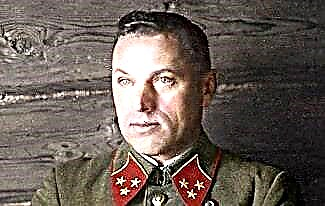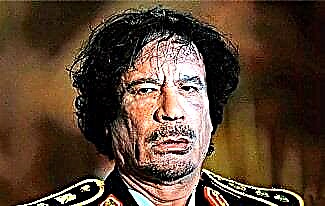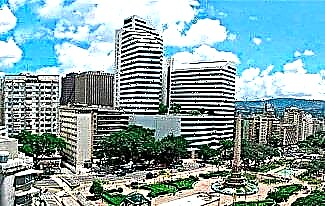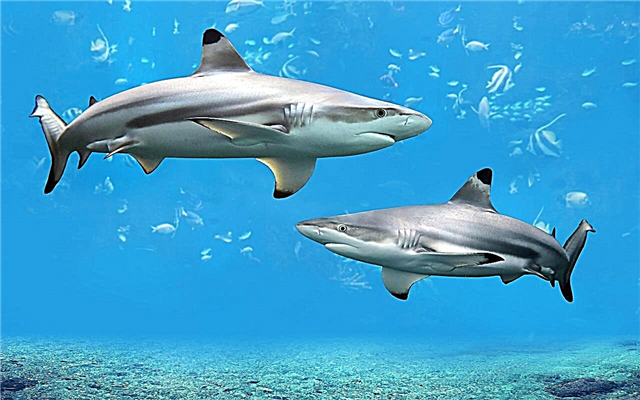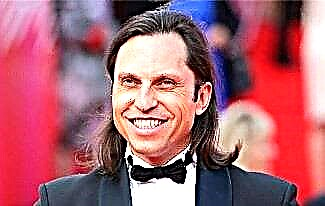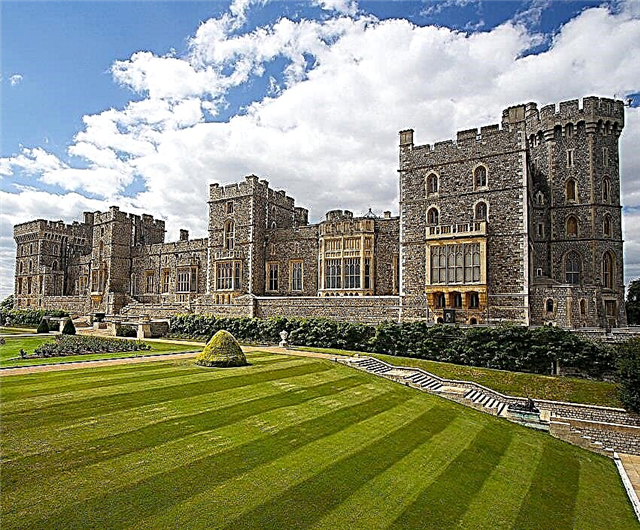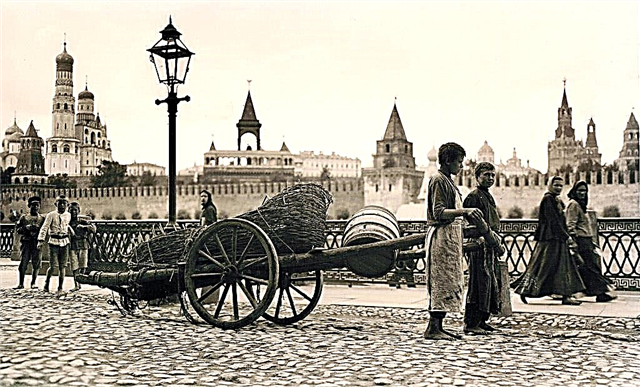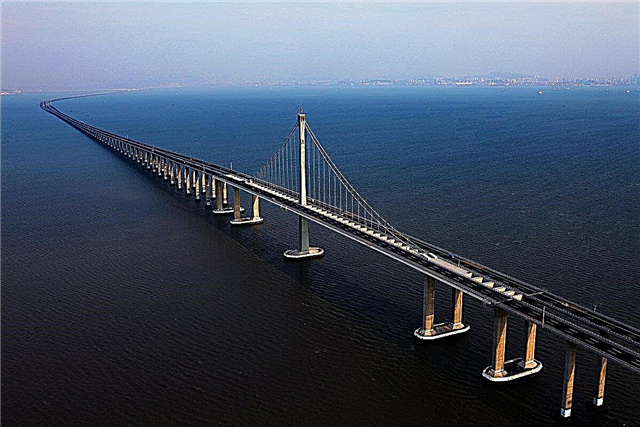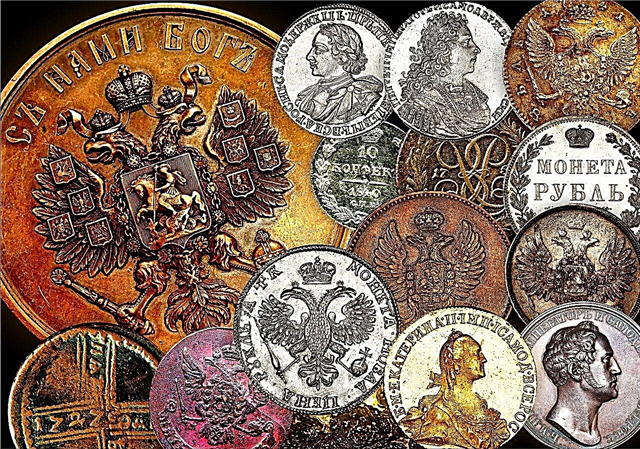In the novel “20 years later,” Athos, preparing the English queen Henrietta for the news of the execution of her husband, says: “... kings from birth stand so high that Heaven has given them a heart that can endure heavy blows of fate, unbearable for other people”. Alas, this maxim is good for an adventure novel. In real life, kings too often turned out to be not the chosen ones of Heaven, but ordinary, even mediocre people, not ready not only for unbearable blows of fate, but even for an elementary struggle for survival.
Emperor Nicholas II (1868 - 1918), when he was the heir, received all possible training in order to rule the vast Russian Empire. He managed to get an education, served in the regiment, traveled, participated in the work of the government. Of all the Russian emperors, perhaps only Alexander II was better prepared for the role of monarch. But the predecessor of Nicholas went down in history as the Liberator, and, in addition to the liberation of the peasants, carried out a number of other successful reforms. Nicholas II led the country to disaster.

There is an opinion, which became especially popular after the imperial family was ranked among the martyrs, that Nicholas II died solely due to the intrigues of numerous enemies. Undoubtedly, the emperor had enough enemies, but this is the wisdom of the ruler to make enemies friends. Nikolay, and because of his own character, and because of the influence of his wife, did not succeed in this.
Most likely, Nicholas II would have lived a long and happy life if he were a middle-class landowner or a military man with the rank of colonel. It would also be nice if the august family were smaller - most of its members, if not directly, then indirectly, were involved in the fall of the Romanov family. Before the abdication, the imperial couple found themselves practically in a vacuum - everyone turned away from them. Shots in the Ipatiev house were not inevitable, but there was logic in them - the renounced emperor was not needed by anyone and was dangerous to many.
If Nicholas were not emperor, he would have been a role model. A loving, faithful husband and a wonderful father. Lover of sports and physical activity. Nikolai was always benevolent to those around him, even if he was dissatisfied with them. He was in perfect control of himself and never went to extremes. In private life, the emperor was very close to the ideal.

1. As befits all royal babies, both Nicholas II and his children were hired by nurses. It was very profitable to feed such a child. The nurse was dressed and shod, paid a large (up to 150 rubles) maintenance and built her a house. The reverent attitude of Nikolai and Alexandra to their long-awaited son is evidenced by the fact that Alexei had at least 5 wet-nurses. More than 5,000 rubles were spent on finding them and compensating families.

Nurse Nikolai's house in Tosno. The second floor was completed later, but the house was still large enough
2. Formally, during the period when Nicholas II was on the throne, he had two life-doctors. Until 1907, Gustav Hirsch was the chief physician of the imperial family, and in 1908 Yevgeny Botkin was appointed as a physician. He was entitled to 5,000 rubles of salary and 5,000 rubles of canteens. Prior to that, Botkin's salary as a doctor in the Georgievsk community was just over 2,200 rubles. Botkin was not only the son of an outstanding clinician and an excellent doctor. He participated in the Russo-Japanese War and was awarded the Orders of St. Vladimir IV and III degrees with swords. However, the courage of ES Botkin even without orders is evidenced by the fact that the doctor shared the fate of his crowned patients after the abdication of Nicholas II, right down to the basement in the Ipatiev House. The doctor was distinguished by great restraint. People close to the imperial family repeatedly mentioned in their memoirs that it was impossible to find out anything about the state of health of Nicholas II, the Empress or the children from Botkin. And the doctor had enough work: Alexandra Feodorovna suffered from several chronic ailments, and the children could not boast of a special strength of health.

Doctor Evgeny Botkin fulfilled his duty to the end
3. Doctor Sergei Fedorov had a huge influence on the fate of Nikolai and his entire family. After curing Tsarevich Alexei from a serious illness provoked by hemophilia, Fedorov received the post of court physician. Nicholas II greatly appreciated his opinion. When in 1917 the question of abdication arose, it was on the opinion of Fedorov that the emperor based himself, abdicating in favor of his younger brother Mikhail - the doctor told him that Alexei could die at any moment. In fact, Fedorov put pressure on the emperor's weakest point - his love for his son.
4. 143 people worked in the Kitchen section of the Imperial Kitchen. They could recruit 12 more assistants from among trained personnel of other specialties. The actual tsarist table was occupied in turn by 10 so-called. “Mundkohov”, the elite of the elite of the art of cooking. In addition to the Kitchen part, there were also Wine (14 people) and Confectionery (20 people) parts. Formally, the headwaiters of the Imperial cuisine were the French, Olivier and Cuba, but they exercised strategic leadership. In practice, the kitchen was headed by Ivan Mikhailovich Kharitonov. The cook, like Dr. Botkin, was shot along with the imperial family.
5. Based on the diaries and preserved notes of Nicholas II and Alexandra Feodorovna, their intimate life was rather stormy even in their mature years. At the same time, on their wedding night, according to Nikolai's notes, they fell asleep early because of the headache of the newlywed. But the subsequent notes and correspondence, dated 1915-1916, when the spouses were well over 40, rather resemble the correspondence of adolescents who have only recently learned the joy of sex. Through transparent allegories, the spouses did not expect that their correspondence would be made public.
6. An imperial trip to nature usually looked something like this. At the chosen place, cleared of bushes (by all means near the water, a temporary dock was equipped for the yacht "Standart") they laid a new sod, broke the tent and set tables and chairs. A corner in the shade stood out for relaxation, sun loungers were placed there. The retinue went to “pick strawberries”. The special boy flavored the berries brought with him with almonds, violets and lemon juice, after which the food was frozen and served to the table. But potatoes were baked and eaten like mere mortals, getting their hands and clothes dirty.

Picnic in a relaxed atmosphere
7. All the sons of the House of Romanov did gymnastics without fail. Nicholas II liked her all his life. In the Winter Palace, Alexander III also equipped a decent gym. Nikolai made a horizontal bar in the spacious bathroom. He built a similarity of a horizontal bar even in his railway carriage. Nikolai loved to ride a bike and row. In winter, he could disappear for hours at the rink. On June 2, 1896, Nikolai made his tennis debut, entering the court in the estate of his brother Sergei Alexandrovich. From that day on, tennis became the main sports hobby of the monarch. Courts were built in all residences. Nikolay also played another novelty - ping-pong.

8. During the travels of the imperial family on the "Standart", a rather strange custom was strictly observed. A huge English roast beef was served daily for breakfast. The dish with him was put on the table, but no one touched the roast beef. At the end of breakfast, the dish was taken away and distributed to the servants. This custom arose, most likely, in memory of Nicholas I, who loved everything English.

Dining room on the imperial yacht "Standart"
9. Traveling across Japan, Tsarevich Nikolai received as special signs not only scars from two blows to the head with a saber. He got himself a dragon tattoo on his left arm. The Japanese, when the future emperor voiced his request, were puzzled. According to the island custom, tattoos were applied only to criminals, and since 1872 it was forbidden to tattoo them too. But the masters, apparently, remained, and Nikolai got his dragon in hand.

Nikolai's trip to Japan was widely covered in the press
10. The process of cooking for the imperial court was detailed in a special “Regulations ...”, the full name of which consists of 17 words. It established the tradition according to which the head waiter buy food at their own expense, and get paid according to the number of meals served. In order to avoid the purchase of poor-quality products, the head waiter paid a deposit of 5,000 rubles each to the cashier - so that, apparently, there was something to be fined from. Fines ranged from 100 to 500 rubles. The emperor, personally or through the knight marshal, informed the maitre d 'what the table should be: everyday, festive or ceremonial. The number of "changes" changed accordingly. For the everyday table, for example, 4 breaks were served at breakfast and dinner, and 5 breaks at lunch. Snacks were considered such a trifle that even in such a lengthy document they were mentioned in passing: 10 - 15 snacks at the discretion of the head waiter. The headwaiters received 1,800 rubles a month with housing or 2,400 rubles without an apartment.

Kitchen in the Winter Palace. The main problem was fast food delivery to the dining room. To maintain the temperature of the sauces, alcohol was literally spent in buckets during large meals.
11. The cost of food for Nicholas II, his family and loved ones, was, at first glance, serious sums. Depending on the lifestyle of the imperial family (and it changed quite seriously), from 45 to 75 thousand rubles a year were spent on the kitchen. However, if we take into account the number of meals, then the costs will not be so large - about 65 rubles per meal of at least 4 changes for several people. These calculations relate to the early years of the twentieth century, when the royal family lived a rather closed life. In the early years of the reign, most likely, the costs were significantly higher
12. Many memoirists mention that Nicholas II preferred simple dishes in food. It is unlikely that this was some kind of special predilection, the same is written about other kings. Most likely, the fact is that, by tradition, French restaurateurs were appointed head waiter. Both Olivier and Cuba cooked excellently, but it was “restaurant-like”. And eating this way for years, day after day, is difficult. So the emperor ordered botvinu or fried dumplings, barely getting on board the "Standart". He also hated salted fish and caviar. On the way from Japan, in every city of the future emperor, they were treated to these gifts of the Siberian rivers, which in the heat led to unbearable thirst. Out of delicacy, Nikolai ate what was brought up, and forever earned an aversion to fish delicacies.

Nikolai never missed an opportunity to taste food from the soldier's cauldron
13. During the last three years of the reign, the dentist came to the imperial family from Yalta. The royal patients agreed to endure pain for two days, while the dentist Sergei Kostritsky traveled to St. Petersburg by train. There is no evidence of any miracles in the field of dentistry. Most likely, Nikolai liked Kostritsky during his traditional summer stay in Yalta. The doctor received a set salary - about 400 rubles a week - for his visits to St. Petersburg, as well as a separate fee for travel and each visit. Apparently, Kostritsky really was a good specialist - in 1912 he filled a tooth for Tsarevich Alexei, and after all, any wrong movement of the boron could be fatal for the boy. And in October 1917, Kostritsky traveled to his patients through Russia, blazing with revolution - he arrived from Yalta to Tobolsk.

Sergei Kostritsky treated the imperial family even after the abdication
14. Most likely, the parents found out right away that newborn Aleksey was sick with hemophilia - already in the first days of the unfortunate baby's life, he suffered prolonged bleeding through the umbilical cord. Despite deep grief, the family managed to keep the disease a secret for a long time. Even 10 years after the birth of Alexei, a wide variety of unconfirmed rumors circulated about his illness. Nikolai's sister Ksenia Aleksandrovna learned about the terrible illness of the heir 10 years later.

Tsarevich Alexey
15. Nicholas II did not have a special addiction to alcohol. Even enemies who knew the situation in the palace admit this. Alcohol was constantly served at the table, the emperor could drink a couple of glasses or a glass of champagne, or he could not drink at all. Even during their stay at the front, in the men's company, alcohol was consumed in extremely moderation. For example, 10 bottles of wine were served for dinner for 30 persons. And the fact that they were served does not mean that they were drunk. Although, of course, sometimes Nikolai gave himself free rein and could, in his own words, “load up” or “sprinkle”. The next morning, the emperor conscientiously noted the sins in his diary, while rejoicing that he slept excellently or slept well. That is, there is no question of any dependence.
16. A big problem for the emperor and the whole family was the birth of an heir. Everyone, from foreign ministries to ordinary bourgeoisie, constantly reared this wound. Alexandra Fedorovna was given medical and pseudo-medical advice. Nicholas was recommended the best positions for conceiving an heir. There were so many letters that the Chancellery decided not to give them any further progress (that is, not to report to the emperor) and leave such letters unanswered.
17. All members of the imperial family had personal attendants and waiters. The system for promoting servants at the court was very complex and confusing, but on the whole was based on the principle of seniority and heredity in the sense that servants passed from father to son, etc. It is no wonder that the closest servants were, to put it mildly, not young, that often led to all sorts of incidents. During one of their large dinners, the old servant, putting fish from a large dish into the Empress's plate, fell, and the fish ended up partly on Alexandra Feodorovna's dress, partly on the floor. Despite his many years of experience, the servant was at a loss. To the best of his ability, he rushed to the kitchen. The diners were tactful, pretending nothing had happened. However, when the servant, who returned with a new dish of fish, slipped on a piece of fish and fell again with the corresponding consequences, no one could restrain himself from laughing. As a rule, servants for such incidents were punished purely formally - they were transferred to a lower position for a week or sent to rest.
18. In the fall of 1900, the reign of Nicholas II could well have ended in connection with his death. The emperor fell seriously ill with typhoid fever. The disease was so difficult that they started talking about the order of inheritance, and even the empress was pregnant. The turning point for the better came only a month and a half after the onset of the disease. Nikolai did not write anything in his diary for a month - for the first and last time in his life. The “sunny path” in Yalta was originally called “Tsarskoy” - it was hurriedly pierced so that the recovering emperor could take walks on level ground.

Immediately after illness
19. Many contemporaries note that Nicholas II worked very hard. However, even in their sympathetic descriptions, the monarch's working day looks not so tedious, and somewhat stupid. For example, each minister had his own day to report before breakfast. It seems to be logical - the emperor sees each of the ministers on schedule. But a reasonable question arises: why? If there are no extraordinary circumstances in the affairs of the ministry, why do we need another report? On the other hand, if extraordinary circumstances arose, Nikolai could well be inaccessible to the ministers. As for the duration of work, Nikolai worked no more than 7 - 8 hours a day, usually less. From 10 to 13 o'clock he received the ministers, then had breakfast and walk, and continued his studies from about 16 to 20 o'clock.In general, as one of the authors of the memoirs writes, it was rare when Nicholas II could afford to spend a whole day with his family.
20. Nikolay's only bad habit was smoking. However, at a time when a runny nose was stopped by cocaine, the fact that smoking can be harmful, all the more did not think. The emperor smoked mostly cigarettes, smoked a lot and often. Everyone in the family smoked, except for Alexei.
21. Nicholas II, like many of his predecessors on the throne, was awarded the Order of St. George, IV degree. The emperor was very touching and sincerely rejoicing at the first award, which he received not according to the status of his person, but for military merit. But George did not add authority among the officers. The circumstances of the monarch's accomplishment of the "feat" spread with the speed of a steppe fire. It turned out that Nicholas II and the heir, during a trip to the front, reached the forward positions of the Russian troops. However, the Russian trenches and the enemy's trenches in this place were separated by a neutral strip up to 7 kilometers wide. It was foggy, and no enemy positions were visible. This trip was considered a sufficient reason for awarding a medal to his son and an order to his father. The awarding itself did not look very beautiful, and even everyone immediately remembered that Peter I, all three Alexander, and Nicholas I received their awards for participating in real hostilities ...

At the front with Tsarevich Alexei

